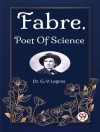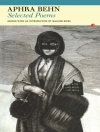An enjoyment of the poet’s art, as seen in the words of T. S. Eliot, Robert Frost, and Wallace Stevens.
‘As a Protestant theologian, ‘ writes Mc Gill in his preface, ‘I have always been puzzled that within the Christian community, poetry is often used for its insight into our modern miseries, but that it is rarely enjoyed as poetry. This book seeks to redress the balance.’
Mc Gill focuses on three American poets–Eliot, Frost and Stevens–all of whom belong to the same poetic generation and thus provide a microcosm of poetry from this era. Influenced by Owen Barfield, John Crowe Ransom, and Cleanth Brooks, he identifies poetry with the fleshly aspect of experience, yet never as distinct from a spiritual aspect. ‘In the kingdom of God, people are created with flesh, reconciled through flesh, and glorified as flesh. To hide from the flesh for the sake of the spirit is to miss the Christian life. It is this danger which gives special meaning to the enjoyment of poetry.’ This experience of poetry, according to Mc Gill, ‘is always a healthy antidote to spiritual pride.’
Sobre el autor
Arthur Mc Gill was Bussey Professor of Divinity at Harvard Divinity School at the time of his death in 1980.












